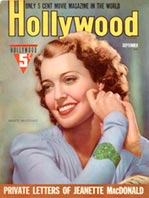If you were around in July 1940 and you decided to take in a movie to beat the heat, you might well have seen the following short film commemorating our nation’s 164th birthday.
“[The signing of the Declaration of Independence] ought to be solemnized with Pomp and Parade, with Shews, Games, Sports, Guns, Bells, Bonfires and Illuminations from one End of this Continent to the other from this Time forward forever more.”—John Adams, July 3, 1776

